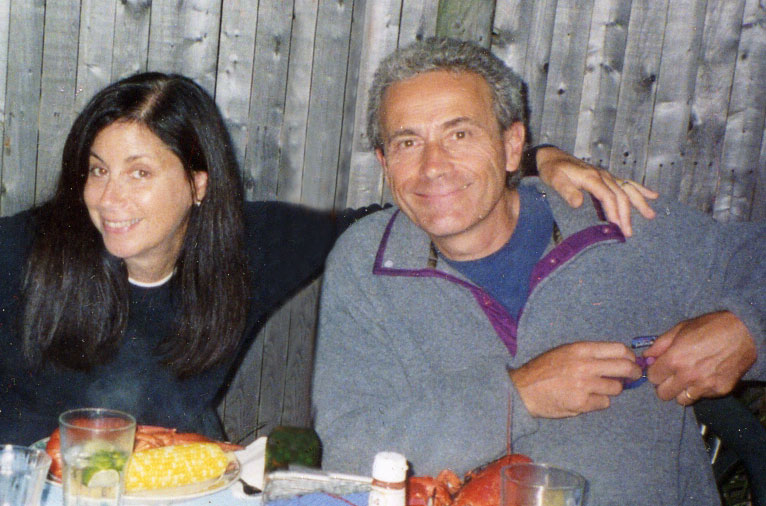 Dinnertime is always a savory affair in my nest. My husband, Ted is truly an outstanding cook. His food is seasoned to perfection, served in an appealing manner, and absolutely scrumptious. Savory in all the best ways. Ted's meals set the tone for family dinnertime dynamics that follow suit.
Dinnertime is always a savory affair in my nest. My husband, Ted is truly an outstanding cook. His food is seasoned to perfection, served in an appealing manner, and absolutely scrumptious. Savory in all the best ways. Ted's meals set the tone for family dinnertime dynamics that follow suit.
 After reading Laurie David’s inspiring, informative, and thoroughly enjoyable book, The Family Dinner, I felt validated that we have embraced a ritual that helped raise our amazing kids. That’s why I’m dishing up some insight into my family’s eco-driven conversations.
After reading Laurie David’s inspiring, informative, and thoroughly enjoyable book, The Family Dinner, I felt validated that we have embraced a ritual that helped raise our amazing kids. That’s why I’m dishing up some insight into my family’s eco-driven conversations.
As Laurie says in her book…“Dinner Spreads Love”
From the time my kids were old enough to cease throwing Fruitios from highchairs, we engaged them in all types of dinnertime banter. The topics were age appropriate, but like other couples that work in similar professions, we get caught up in what our kids affectionately call our “stuff.” Ted is an environmental planner, and I’m an environmental writer. We’re almost always on the same page – it’s the approach that sometimes gets us in trouble.
Ted passionately looks at the big picture and long-term consequences. I passionately focus on day-to-day green actions. He puts together documents that are big enough to sit on. I write snippets for blogs that you could tuck into your pocket.
What’s eating us?
Before I invite you to join us around the table, let me disclose some marital insight: I think Ted is a tad long-winded (I’m being nice here). If you asked him, he would probably say I oversimplify the issues. I must also mention again, that my nest is mostly empty, which leaves Ted and I sharing our dinner (and wine) without kid meditation to reign us in.
(My kids are eye-rolling and nodding their heads in agreement.)
Table Talk
It was excessively hot in the Northeast last week, and Ted announced Sunday that he was not cooking…
Ted: We’ll eat whatever you picked up at the farmer’s market.
Ronnie: OK, I’m cool with – fiddleheads, ramps, shitakes, arugula, sugar snaps, garlic scapes, and whatever else the kids wouldn’t have eaten. (See, empty nests are not as bad as they are cracked up to be.)
The mere mention of not lighting up the gas stove brings out the eco-geekiness in me and I drop an energy issue bomb…
R: What happened to renewable energy? I thought solar, wind, and geothermal were going to make a clean sweep over the power companies and offer homeowners real energy solutions for the future. Was that just a fantasy?
T: If we don’t kick our fossil fuel habit, our children will pay the price of our excess. Diminishing oil reserves and worldwide demand will price us out of the market, and climate change will force some out of their homes. There may be 30 to 50 years of oil left, and loads of coal, but burning 100,000 years of “buried sunshine” each year has created an imbalance in carbon dioxide in the atmosphere - the main cause of global warming. Lest not forget, natural gas that needs to be extracted by fracking - that is known to contaminate wells and pollute the air. The sun is estimated to continue to shine for at least 5 billion more years. This is the time to harness the sun and capture the wind. It’s even getting more affordable. We should behave responsibly to our kids and keep exploring alternatives.
R: Doesn’t the world already employ renewable energy practices?
T: Right now only about 13% of the world's energy is renewable.
How does he always have those statistics right at his fingertips? Here comes my best shot...
R: I read in Treehugger (beloved blog) that the Intergovernmental Panel on Climate Change says the world can get 80% of its power from renewable sources by 2050. The report claims that if a "full range of renewable technologies were deployed," we could attain this truly clean power goal in under 40 years. Wow, this sounds responsible, right?
T: Yeah, I read that too. The Rocky Mountain Institute goes even further. They say that it would be profitable to displace oil completely over the next few decades. By 2025, the annual economic benefit of that displacement would be $130 billion. Investing now in renewable energy can also help poor countries develop, particularly where large numbers of people lack access to an electricity grid.
R: Just think of what an awesome deal clean energy production would be in terms of health benefits and economic savings. Power the world…Save the poor...Clean air for all!
T: Not so fast. There's a minor glitch: our elected public officials have to enact policies that promote green power…and people need to be given the tools to adopt it. The US is the world's biggest energy consumer, and our politicians are not on the same page. Go tell your Moms Clean Air Force that while they are asking their congressmen to clean up the air, to also tell their local elected officials they can do more. I work with non-partisan planning boards. New development should be subject to smart growth principles. Even while that’s happening, conservation pays. Energy-efficiency is still the cheapest form of energy available today. It is a prerequisite to investing in renewables. Before we can even envision a world powered by wind and sun, we’ve got to remember that conservation and reducing consumption across the board should be our first priority.
R: So glad I share these savory dinner conversations with you. Happy Father’s Day, Ted…and thanks for joining the Moms Clean Air Force.
